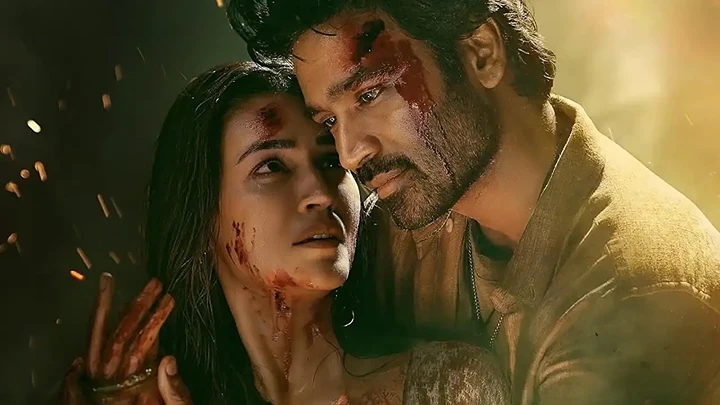


By Our Insights Desk
To say that the pandemic has had a defining impact on the Indian Media & Entertainment industry, especially the theatrical business, would be an understatement. Much has been spoken about the need for the film industry to evolve and adapt to the dynamic, post-pandemic landscape. But how has the pandemic influenced the theatre-going audience's taste and preferences? And how does one account for evolving consumer preferences while making key business decisions, such green-lighting a script, assigning budgets to a film project, deciding on a theatrical vs. OTT release, etc.?
In our theatrical content testing tools Ormax Moviescope and Ormax First Draft, we use Ormax Power Rating (OPR) as a metric to capture the likability and engagement of the audience with the script or the film being tested. This rating, on a 0-100 scale, encapsulates the audience approval or rejection of the content, e.g., a score of 70+ suggests the audience have whole-heartedly accepted the content, while a score below 40 suggests outright rejection.
To arrive at the OPR for any test script or film, we use ‘OPR Drivers’, i.e., factors (or benefits) that can have a positive influence on a film’s audience engagement, once they have stepped into a theatre to watch it. OPR Drivers are identified through extensive ongoing qualitative research. These drivers are then assigned weights to reflect their relative importance, based on statistical modeling of high-OPR films released in the last 12 months.
While weights are updated every six months, updating drivers is a less-frequent exercise. After all, we don’t expect consumer benefits from a category to fundamentally change more than once in a few years. But given the watershed impact of the pandemic on the content landscape in India, a drivers update seemed imperative, so that OPR Drivers accurately reflect consumer expectations from theatrical content in 2022. For this, extensive qualitative research was conducted between May and July this year, followed by large-sample quantitative research to validate the new drivers, and assign weights to them. This research was conducted across India, covering all the major theatrical languages. The drivers selected are ‘universal’ (same across languages), but their weights vary by language, capturing the taste nuances each language audience bring with them.
You can download a product update deck here, which details all the drivers. A summary of important changes in the update follows:
An intuitive outcome of this update is that the driver Production Scale has moved up from seventh to first rank in its weightage (for Hindi theatrical). We define this driver as follows: Big-scale production, as apparent through sets & locations, leading to visual escapism and a theatrical-worthy viewing experience. With the emergence of streaming as an alternative, scale has emerged as a primary enabler of theatrical viewing experience, as has been evident in how films like K.G.F: Chapter 2 and RRR have been received by the audience. Absence of scale makes a film a strong candidate for a direct-to-OTT release. Production Scale is a low-ranked driver for direct-to-OTT films, ranking no. 13 (out of the 14 drivers applicable to that category).
In addition to the increase importance of the driver Production Scale, four new drivers have been added in this update:
1. Swag
Definition: Depiction of characters that display style, confidence and irreverence, portrayed through their looks, mannerisms, actions & dialogues
The success of larger-than-life characters who exude confidence, and display their irreverence in an assertive manner, like Rocky in K.G.F: Chapter 2, or Pushpa in Pushpa: The Rise, is best explained by the emergence of Swag as one of the top-rated drivers in a theatrical context. Swag symbolises a style and attitude that denounces subservience, and instills a sense of empowerment, along with coolness, in the viewer's mind.
2. Optimism
Definition: Positive tonality delivered through characters, situations and messages, leading to a promise of feel-good, and an uplifting after
Collectively coming out of one the bleakest times in decades, and being surrounded with fear and uncertainty for more than two years at a stretch, has left the audience with a strong appetite for positive and hopeful stories. Be it the victory of the marginalized in RRR against the oppressive Britishers, or Gangubai's ability to find light and life in the darkest corners of the world, these stories reflect a positive and constructive outlook and world-view, leaving the audience with a positive after-taste.
3. Rooted In Culture
Definition: Story, characters and presentation that have their roots in values, traditions, culture and ethos of India (or the region of relevance), creating a sense of feel-good reinforcement
While there is a strong and emerging need for escapist content, parallelly, there is also a growing audience expectation to watch stories that are grounded in the larger ethos of our culture. Movies like Tanhaji: The Unsung Warrior, which emphasizes elements of Maratha culture, underline this benefit. And while it’s an aberration at large from a box office perspective (read here), The Kashmir Files too benefited from strong presence of this driver.
4. Authenticity
Definition: Accurate and realistic depiction of locations, setting, characters, etc., in a way that comes across as real and credible
While not conducive to all genres (e.g., fantasy fiction like Brahmāstra), accurate depiction, especially in the case of historicals, period dramas, or biopics, has emerged as an important expectation from theatrical content. With greater exposure to content from various geographies, Indian or abroad, audiences are more aware, than ever before, about the importance of meticulous detailing that goes into getting characters and their worlds, for a film to come across as genuine, and not ‘fake’ or synthetic.
Click here to download the 2022 product update deck for Ormax Moviescope and Ormax First Draft.
To read our comprehensive explainer on Content Testing, click here.

Ormax Cinematix's FBO: Accuracy update (December 2025)
This edition of our monthly blog summarises Ormax Cinematix's box office forecasts (FBO) for all major December 2025 releases vis-à-vis their actual box-office openings

The India Box Office Report: November 2025
November 2025 was an underwhelming month at the India Box Office, recording only ₹587 Cr in gross collections. However, the year stays on course to become the highest-grossing year of all time

Ormax Cinematix's FBO: Accuracy update (November 2025)
This edition of our monthly blog summarises Ormax Cinematix's box office forecasts (FBO) for all major November 2025 releases vis-à-vis their actual box-office openings
Subscribe to stay updated with our latest insights
We use cookies to improve your experience on this site. To find out more, read our Privacy Policy